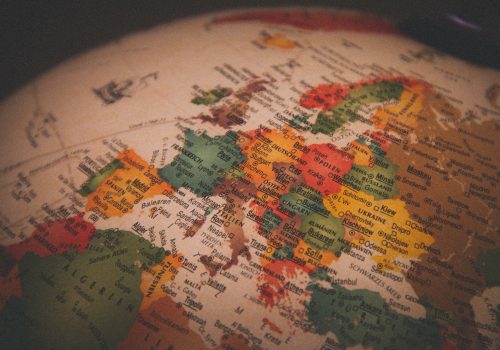Smart partnerships for global challenges
Smart partnerships on the international and domestic levels, particularly between governments and private sectors, could play an essential role in ensuring AI is geared towards solving global challenges. African scientists in the field of AI, for instance, use game theory models to help stakeholders find contextual policies for dealing with emerging technologies. Other attempts include efforts to localize or regionalize data collections. African contributors were proud to point to examples of modern technologies already working hand-in-hand with infrastructure and human capital investments. Together with Zipline, a drone delivery company that specializes in providing access to vital medical supplies, the Rwandan government, for instance, administers drug and blood testing through drones; Zindi, the first data science competition platform in Africa, offers opportunities to solve specific challenges identified by companies, civil society organizations, and governments, based on best practices; a company named Lydia bridges the credit gap in many African markets by helping small businesses access credit within short periods of time, using trained algorithms instead of traditionally onerous financial screening; and all over the continent, modern technologies are also used in the fight against the novel Coronavirus. Closing the gap between expectation and reality, of course, remains the biggest challenge but there is reason to be hopeful that with the right incentives and government policies, African countries can move quickly to exploit emerging technologies, accelerate economic development, and host an increasing number of tech hubs in the future.
Key Areas for Cooperation
- Governments must establish universally agreed baselines on the harms versus the benefits of the AI revolution, which could inform multilateral and national institutions as to the needed regulatory steps to minimize negative externalities, while maximizing potential benefits. An effort that could be modeled on the United Nations Framework Convention on Climate Change (UNFCCC) process that is broadly recognized as providing the objective and factual basis for considering necessary climate change policies. Using the broad agreements on AI principles completed by the United States, the European Union, China, and others can be a first step towards developing such common guidelines on AI implementation.
- We call for a mechanism for sharing failures as much as successes in the employment of AI. Such sharing across multiple efforts could help establish international guidelines to define the rules of the game, prevent escalating conflicts, and enable the reconciliation of social needs with new technologies. International organizations and non-governmental bodies could help develop such platforms of exchange while simultaneously providing for a regional emphasis. Some African and Indian technologists thought they could learn more from other developing countries and their experiences in employing technologies than they would from advanced economies.
- With countries at odds with one another, non- governmental track-two exchanges, particularly between the United States and China, on governing approaches towards emerging technologies are key for building trust, developing effective policies, and laying the groundwork for future government-to- government negotiations.
- Bringing together multi-stakeholder groups within countries to lay the groundwork for governments to develop capacity-enabling regulations is essential, too, as technologies develop faster than governments can absorb. Hence, decision makers are slow every- where to help in optimizing the benefits of emerging technologies and leave populations vulnerable to negative externalities.
- In order to give the global AI competition a different spin and emphasize the “technology for good” approach, it would be wise to highlight organizations that focus on AI applications in healthcare, education, food security and agriculture, or infrastructure endeavors, particularly in a post-Covid-19 recovery.
The full text of this report is split across a collection of articles to give readers the opportunity to browse in any order. To return to the main page click here.

The GeoTech Center champions positive paths forward that societies can pursue to ensure new technologies and data empower people, prosperity, and peace.






